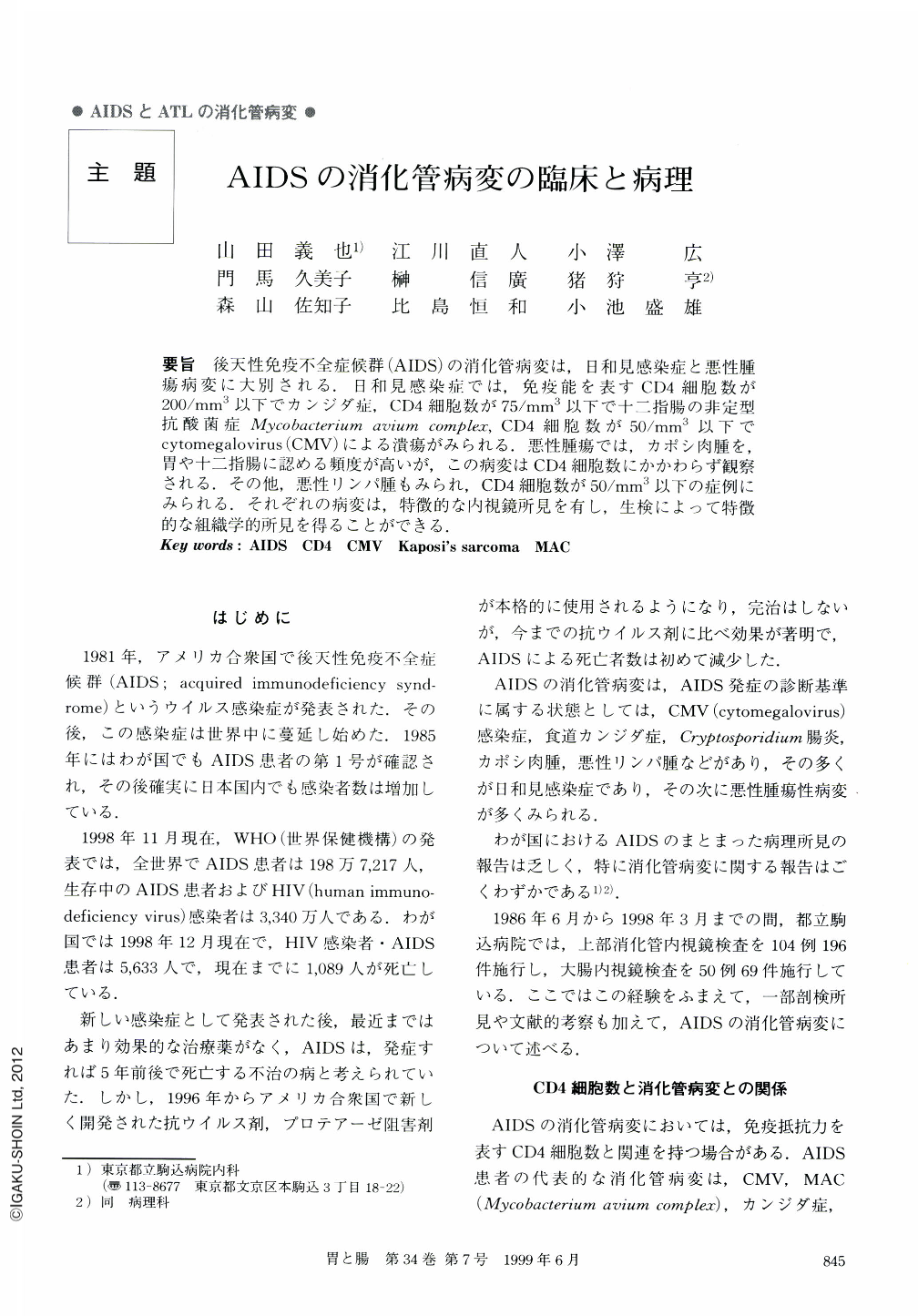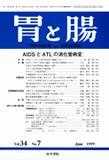Japanese
English
- 有料閲覧
- Abstract 文献概要
- 1ページ目 Look Inside
- サイト内被引用 Cited by
要旨 後天性免疫不全症候群(AIDS)の消化管病変は,日和見感染症と悪性腫瘍病変に大別される.日和見感染症では,免疫能を表すCD4細胞数が200/mm3以下でカンジダ症,CD4細胞数が75/mm3以下で十二指腸の非定型抗酸菌症Mycobacterium avium complex,CD4細胞数が50/mm3以下でcytomegalovirus(CMV)による潰瘍がみられる.悪性腫瘍では,カポシ肉腫を,胃や十二指腸に認める頻度が高いが,この病変はCD4細胞数にかかわらず観察される.その他,悪性リンパ腫もみられ,CD4細胞数が50/mm3以下の症例にみられる.それぞれの病変は,特徴的な内視鏡所見を有し,生検によって特徴的な組織学的所見を得ることができる.
Even following prolonged treatment with the most effective current antiviral drugs and protease inhibitors, the same characteristic gastrointestinal lesions still remain in the endoscopic findings of AIDS patients. In other words, AIDS is an incurable disease. Some of these gastrointestinal lesions, the result of opportunistic infections common in AIDS patients, are related to the CD4 count, which is one of the indicators of the level of immunological protection. For example, in cases of esophageal candidiasis, the CD4 level was less than 200/mm3; with Mycobacterium avium complex(MAC), the CD4 level was less than 75/mm3 ; and with CMV (cytomegalovirus) ulcers or erosion in the esophagus or the stomach, the CD4 count was less than 50/mm3. Candidiasis is recognized by the thick circular white coating in the esophagus ; CMV ulcers by their punched-out shape ; and MAC by frosted duodenal mucosa. All three conditions are diagnosed by means of biopsy specimens. Other lesions include malignant tumors, mostly Kaposi's sarcoma in the stomach or the duodenum or malignant lymphoma in the stomach. Kaposi's sarcoma shows submucosal nodule lesions with reddish mucosa. Sometimes, there is a depression in the top of the lesion. It is also able to be diagnosed through characteristic biopsy specimens.

Copyright © 1999, Igaku-Shoin Ltd. All rights reserved.


